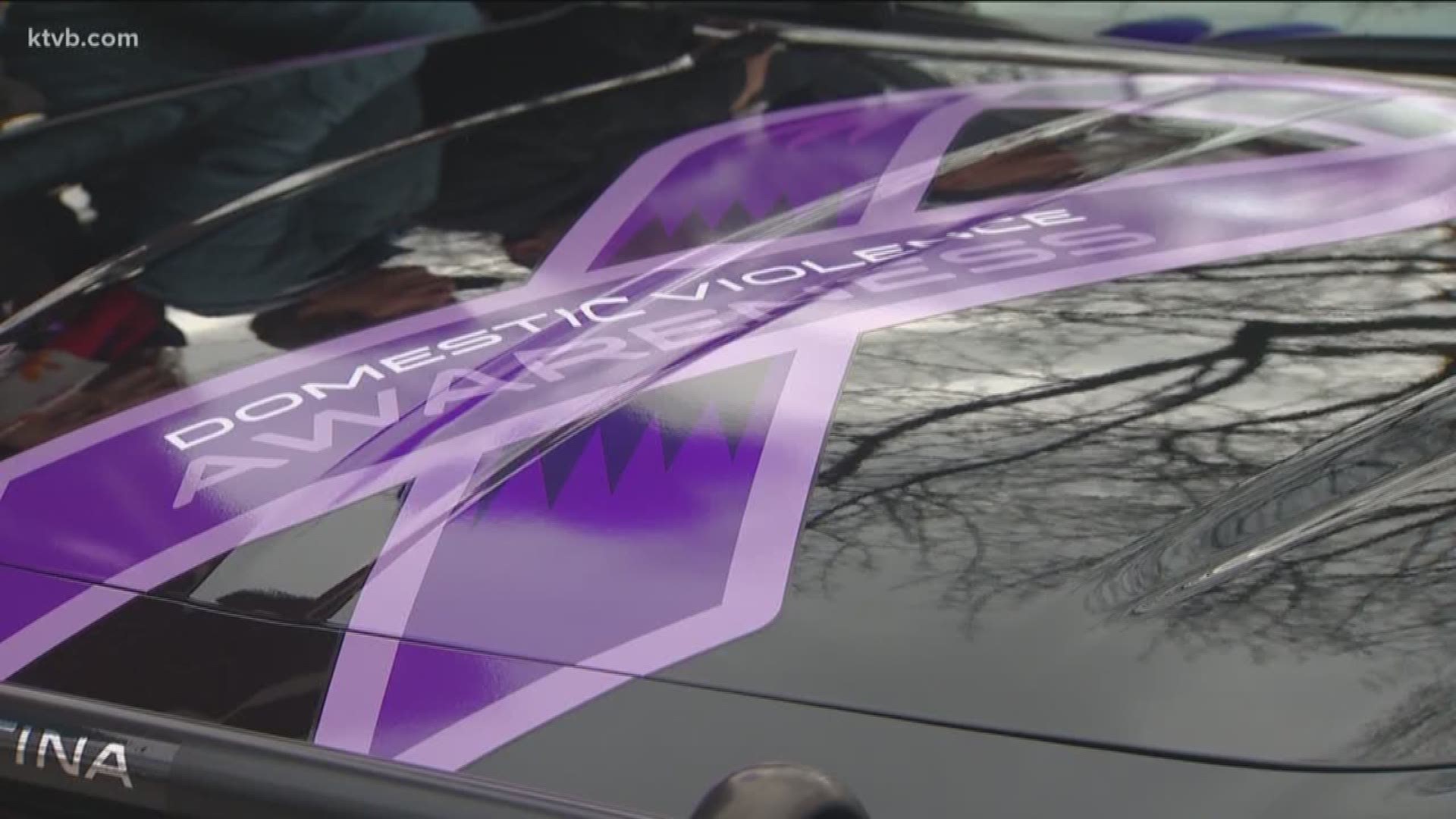BOISE -- After a 22-year-old mother was stabbed to death at a Nampa home, attention is being called to domestic violence warning signs.
The terrible incident is shedding light on the grave and dangerous problem. We wanted to know: what are the warning signs of abuse? .And what should family and friends look out for?
According to the National Domestic Violence Hotline, "domestic violence (also called intimate partner violence (IPV), domestic abuse or relationship abuse) is a pattern of behaviors used by one partner to maintain power and control over another partner in an intimate relationship."
It is more prevalent than we might think; national statistics show more than one in three women and more than one in four men in the United States have experienced rape, physical violence and/or stalking by an intimate partner in their lifetime.
Domestic abuse isn't only physical and warning signs develop, ranging from jealousy to demeaning comments to threats.
"It can start seeming to be very innocuous and very loving: 'You know I care so much about you, I want to protect you' and yet what it translates into is over the top sense of control," Women's and Children's Alliance (WCA) Executive Director Beatrice Black said.
Domestic violence is all about control and power. Advocates say we all need to pay attention to warning signs - as subtle as some may be.
"It's really important for family and friends to be looking out for these things because often a victim will at least know something in the relationship doesn't feel right or fear for their safety or have reason to leave," Idaho Coalition Against Sexual and Domestic Violence Director of Law and Policy, Annie Pelletier, told KTVB.
Control bares its teeth in so many ways, and abuse can be emotional, manipulative, possessive, financial. The National Domestic Violence Hotline lists some of the signs of an abusive relationship that include a partner who:
- "Tells you that you can never do anything right
- Shows extreme jealousy of your friends and time spent away
- Keeps you or discourages you from seeing friends or family members
- Insults, demeans or shames you with put-downs
- Controls every penny spent in the household
- Takes your money or refuses to give you money for necessary expenses
- Looks at you or acts in ways that scare you
- Controls who you see, where you go, or what you do
- Prevents you from making your own decisions
- Tells you that you are a bad parent or threatens to harm or take away your children
- Prevents you from working or attending school
- Destroys your property or threatens to hurt or kill your pets
- Intimidates you with guns, knives or other weapons
- Pressures you to have sex when you don’t want to or do things sexually you’re not comfortable with
- Pressures you to use drugs or alcohol"
"It's always really difficult to make assumptions but if all the sudden there is a change in behavior, that could potentially be a red flag," Black said.
Support of family and friends is key - even if it feels like your loved one going through the abuse is pulling away.
"One of the things you'll often see is the abuser will isolate someone to keep them away from those support systems that will help them create safety in their lives," Pelletier said. "Lots of abusive behaviors used to control someone are not physical behaviors."
Pelletier and Black advise watching for signs of escalation of abuse - whether it's in severity or frequency. They say an abuser is the least predictable and it's riskiest when the victim leaves them.
"What happens when someone chooses to leave is that the abusive partner loses control," Pelletier said.
"You never know what someone is capable of and the most dangerous time is when the individual has decided to make a break with the individual who has been controlling them," Black added.
Victims of abuse need to have a safety plan and safety net around them so they can get out. Court advocates with the WCA help victims make an individualized plan.
"Reach out for help, trust your instincts, don't be afraid to ask questions," Black said.
"You're not alone. It may feel like you are but there are people that care about you in this community and there are resources for you," Pelletier added.
Along with a safety plan, the WCA can provide you with emergency shelter, counseling, legal advice and much more. Learn more here. You can call their domestic violence hotline at (208) 343-7025.

